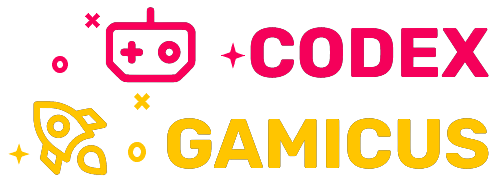Abandonware is computer software of which the copyright is no longer able to legally be enforced, because the company that owned the rights to the intellectual property went into liquidation, or shut down, without selling or transferring ownership of that copyright to another company.
Enforcement of copyright[ | ]
Abandonware's copyright is frequently not defended, and proponents of abandonware argue that it is more ethical to make copies of such software than new software that still sells. Some who are ignorant of copyright law have incorrectly taken this to mean that abandonware is legal to distribute; no software is old enough for its copyright to have expired, and even in cases where the original company no longer exists, the rights still belong to someone.
Transfer of this software is still technically unlawful in most jurisdictions (except in cases of owner dissolution) as the copyright is still in effect. Abandonware changes hands based on the presumption that the time and money that a copyright holder would have to spend enforcing the copyright is greater than any money the holder would earn selling software licenses. Often the availability of abandonware on the internet is related to the willingness of copyright holders to defend their copyrights. For example, unencumbered emulators and games for ColecoVision are markedly easier to find on the internet than unencumbered emulators and games for Intellivision in large part because there is still a company that makes money by selling Intellivision games while no such company exists for the ColecoVision.
Companies do sometimes voluntarily relinquish copyright on software, putting it into the public domain, or re-license it as freeware or open source. id Software is notable as an early proponent of this practice, releasing older titles under an open source license. Another example is Amstrad, who support emulation and free distribution of ZX Spectrum hardware ROMs and software. The transfer of public domain or free software is perfectly legal, distinguishing it from abandonware. However, relinquishing copyright is uncommon - the copyright ownership of all portions is often unclear, creating difficulties in open-sourcing, and there is rarely an economic incentive to do so. Also, limited time promotional free downloads are often mistaken for a proper freeware release.
Old copyrights that are still of value[ | ]
A common misconception is that "abandonware" is synonymous with "old warez", that is, any software older than a certain threshold (a common one being five years). This is not always the case, as some software companies (like Apogee) still offer many of their older titles for sale and actively pursue those who illegally offer them. Atari 2600 games are commonly distributed on the internet based on the presumption that no one would buy a primitive Atari game. However, mobile phone manufacturers have often bought the rights to publish these games, which can be made to work well on newer programmable mobile phones and smart phones.
Some publishers argue that all abandonware distribution is harmful, whether it is still possible to buy the game or not. The reasoning is that because of the success companies like Nintendo and Activision have had in releasing old games for newer platforms like the GameCube, Game Boy Advance and the PlayStation 2, all abandonware has potential value, and that distributing it free on the internet decreases the profits to be had from a legal re-release.
Major games made available[ | ]
The following formerly retail games have been made available for free download by their copyright holders for various reasons, often as publicity for a forthcoming sequel or compilation release.
- The Elder Scrolls: Arena (1994) by Bethesda Softworks released to mark the 10th anniversary of the The Elder Scrolls series, and as publicity release prior to the 4th instalment, The Elder Scrolls IV: Oblivion (Get it here)
- Beneath a Steel Sky (1994) by Revolution Software released to support the ScummVM Project (Get it here) (Jackreyes' Gaming Blog Review - 2009)
- Flight of the Amazon Queen (1995) by Interactive Binary Illusions released to support the ScummVM Project (Get it here)
- Betrayal at Krondor (1993) by Sierra On-Line, limited time promotional free download in 1997
- Caesar (1991) by Impressions, later re-released by Sierra On-Line, limited time promotional free download
- Elite (1984) by Acornsoft, freeware release in 1999 courtesy of game developer Ian Bell (Get it here)
- Elite + by Acornsoft, freeware release in 1999 courtesy of game developer Ian Bell (Get it here)
- Grand Theft Auto (1997) by Rockstar Games, free download release in 2002 as publicity for the release of Grand Theft Auto: Vice City (Get it here)
- Grand Theft Auto 2 (1999) by Rockstar Games, free download release in 2004 as publicity for the release of Grand Theft Auto: San Andreas (Get it here)
- Hidden and Dangerous
- Lure of the Temptress (1992), by Revolution Software, (Get it here)(Jackreyes' Gaming Blog Review - 2009)
- Red Baron (1990), by Dynamix/Sierra On-Line, limited time promotional free download
- Starsiege: Tribes (1998), by Dynamix/Sierra On-Line, free download release in 2004 as publicity for the release of Tribes: Vengeance (Tribes 3) (Get it here)
- Tribes 2 (2001), by Dynamix/Sierra On-Line, free download release in 2004 as publicity for the release of Tribes: Vengeance (Tribes 3)
- Akalabeth (1979) by Lord British, see also the Ultima series.
- Ultima IV: Quest of the Avatar (1985) by Lord British, see also the Ultima series.
- Wild Metal (1999), by Rockstar Games, (Get it here)
- Zero Tolerance (1994), by Technopop. Not in the public domain, but made available for download royalty-free. Technopop web page.(Get it here)
